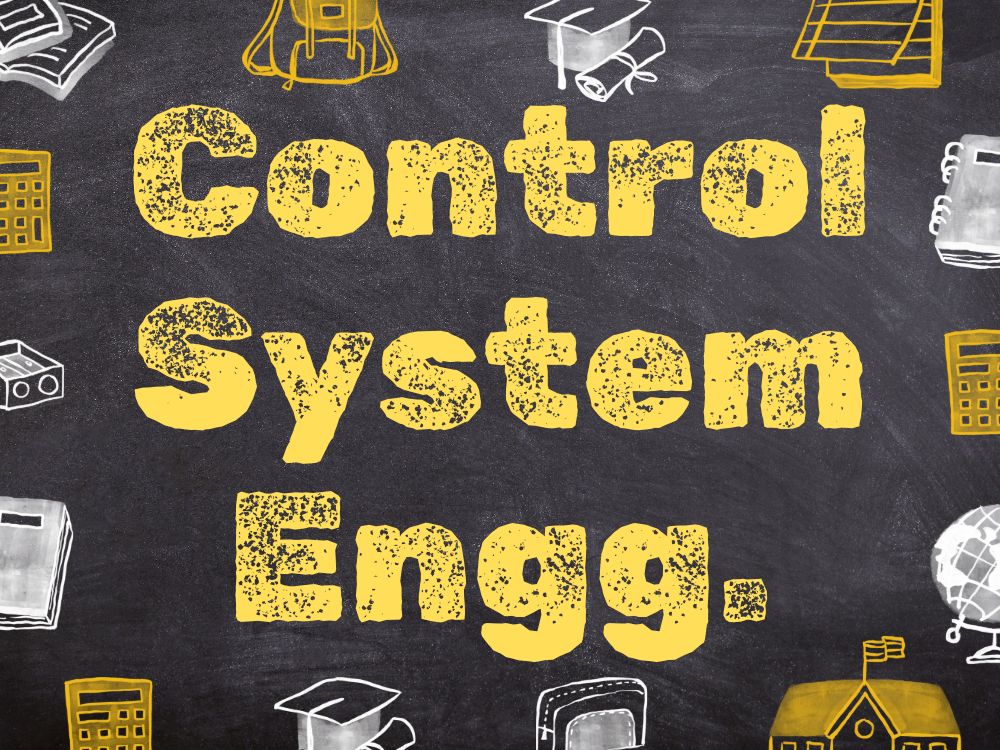Control System Engineering [Videos, Notes, Tests]

$11.9
$24.01
Description
This Control Systems course covers all the basic fundamentals of Control System Engineering.
Here Prof. Hitesh Dholakiya has covered all the topics of Control Systems/Control System Engineering with the following outlines:
1. Introduction to Control Systems:
Open Loop System, Closed Loop System, Comparison of Open Loop System and Closed Loop System, Feedback in Control System, Effects of Feedback in Control System.
2. Transfer Function of Control Systems:
Basics of Transfer Function, Transfer Function from Differential Equation, Transfer Function of RC & RL Circuits (High Pass Filter and Low Pass Filter), Transfer Function and Oder of System, Transfer Function of Electrical Network.
3. Block Diagram of Control Systems:
Basics of Block Diagram, Block Diagram Reduction Rules, Examples of Block Diagram Reduction Rules.
4. Signal Flow Graph of Control Systems:
Terminologies and Rules of Signal Flow Graph, Mason Gain Formula of Signal Flow Graph, Mason Gain Formula Solved Examples, Block Diagram to Signal Flow Graph Conversion.
5. Mathematical Modeling of Mechanical System:
Mathematical Modelling of Mechanical System, Mechanical System, Electrical System, Force Voltage Analogy, Force Current Analogy, Torque Voltage Analogy, Torque Current Analogy, Examples of Mathematical Modelling of Mechanical System.
6. Time & Frequency Response Analysis of Control Systems:
Test Signals, Steady State Error, Static Error Constants, Steady State Error with Unit Step Input, Unit Ramp Input and Unit Parabolic Input, Order and Type of System, Time Response Analysis, Unit Impulse Response of 1st Order System, Unit Step Response of 1st Order System, Unit Ramp Response of 1st Order System, Nature of Roots with 2nd Order System, Unit Step Response of 2nd Order System with Under-Damped, Critically Damped, and Over Damped System, Rise Time, Peak Time, Maximum Peak Overshoot, Settling Time, Initial and Final Value Theorem, Frequency Response Analysis, Resonance Frequency, Resonance Peak, and Bandwidth of 2nd Order System, Examples of Time Response & Frequency Response Analysis.
7. Routh Stability of Control Systems:
Stability Criteria of Control System, Routh Stability Criteria of Control System with Special Case I, II, and Oscillatory Conditions.
8. Root Locus of Control Systems:
Root Locus Basics and Rules, Root Locus Examples.
9. PID Controllers in Control Systems:
Proportional Controllers, Integral Controllers, Derivative Controllers, PI, PD and PID Controllers.
10. Polar Plot of Control Systems:
Basics, Procedure, Advantages, Stability, and Parameters of Polar Plot, Examples of Polar Plot.
11. Nyquist Plot of Control Systems:
Basics, Procedure, Advantages, Stability, and Parameters of Nyquist Plot, Examples of Nyquist Plot.
12. Bode Plot of Control Systems:
Basics, Procedure, Advantages, Stability, and Parameters of Bode Plot, Examples of Bode Plot.
13. State Space Analysis of Control Systems:
Basics, Applications, Advantages, Representation, Terms, and Equations of State Space Analysis, State Space Analysis for MIMO System, State Space Analysis to Identify Transfer Function, State Space Analysis for Differential Equations, State Space Analysis for Electrical Systems, State Space Analysis for Signal Flow Graph, Controllability and Observability by Kalman's Test using State Space Analysis.
14. Compensator in Control Systems:
Introduction to Compensator, Lag Compensator, Lead Compensator, Lag-Lead Compensator, Effects of Lag Compensator and Effects of Lead Compensator, Examples of Compensator.
By the end of this course, you'll have the knowledge and skills to design, analyze, and implement control systems effectively. Enroll today and start mastering the core principles of Control Systems/Control System Engineering!
See you in the course.
[Validity of the course will be for 6 Months]
Thank You.
Loading...